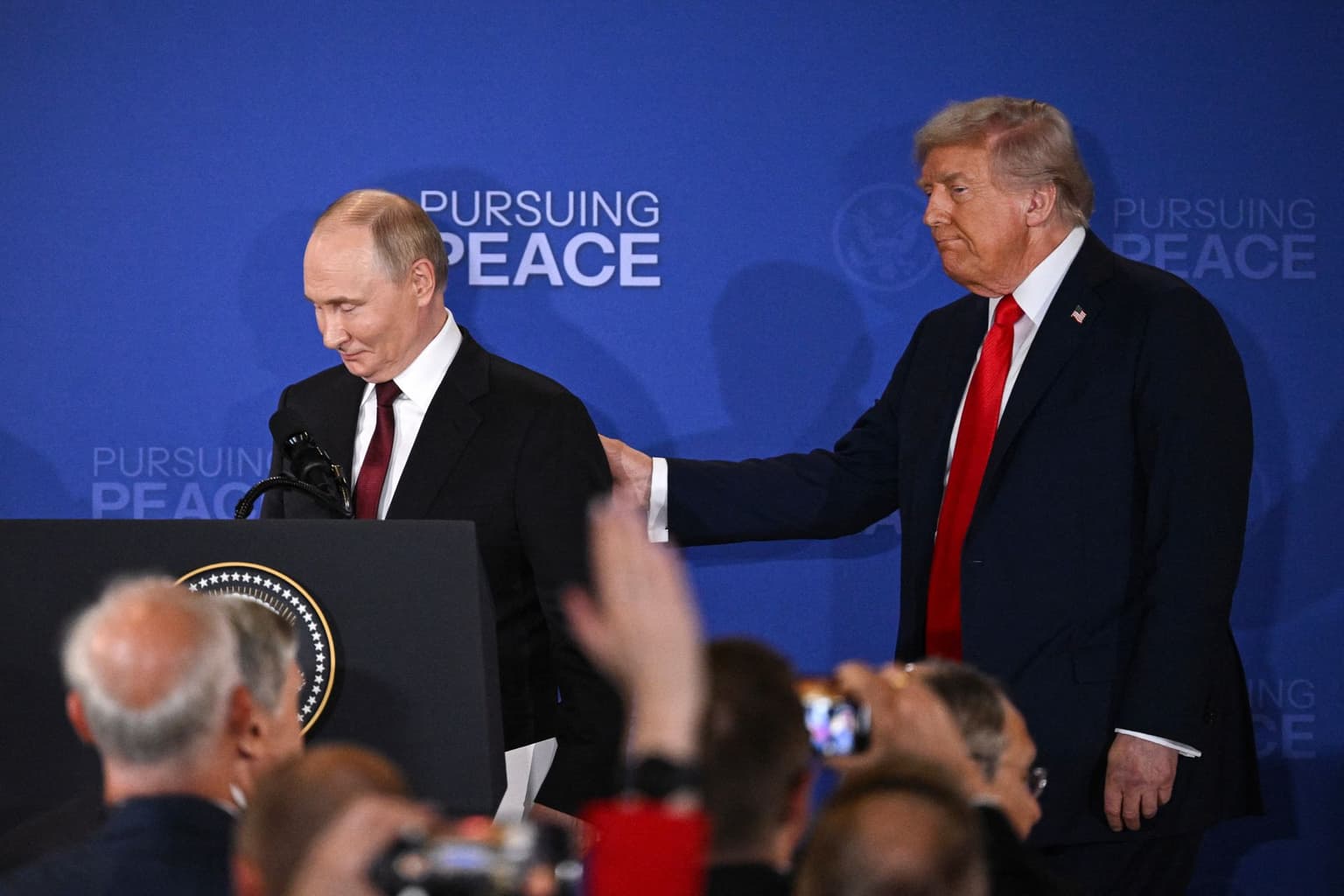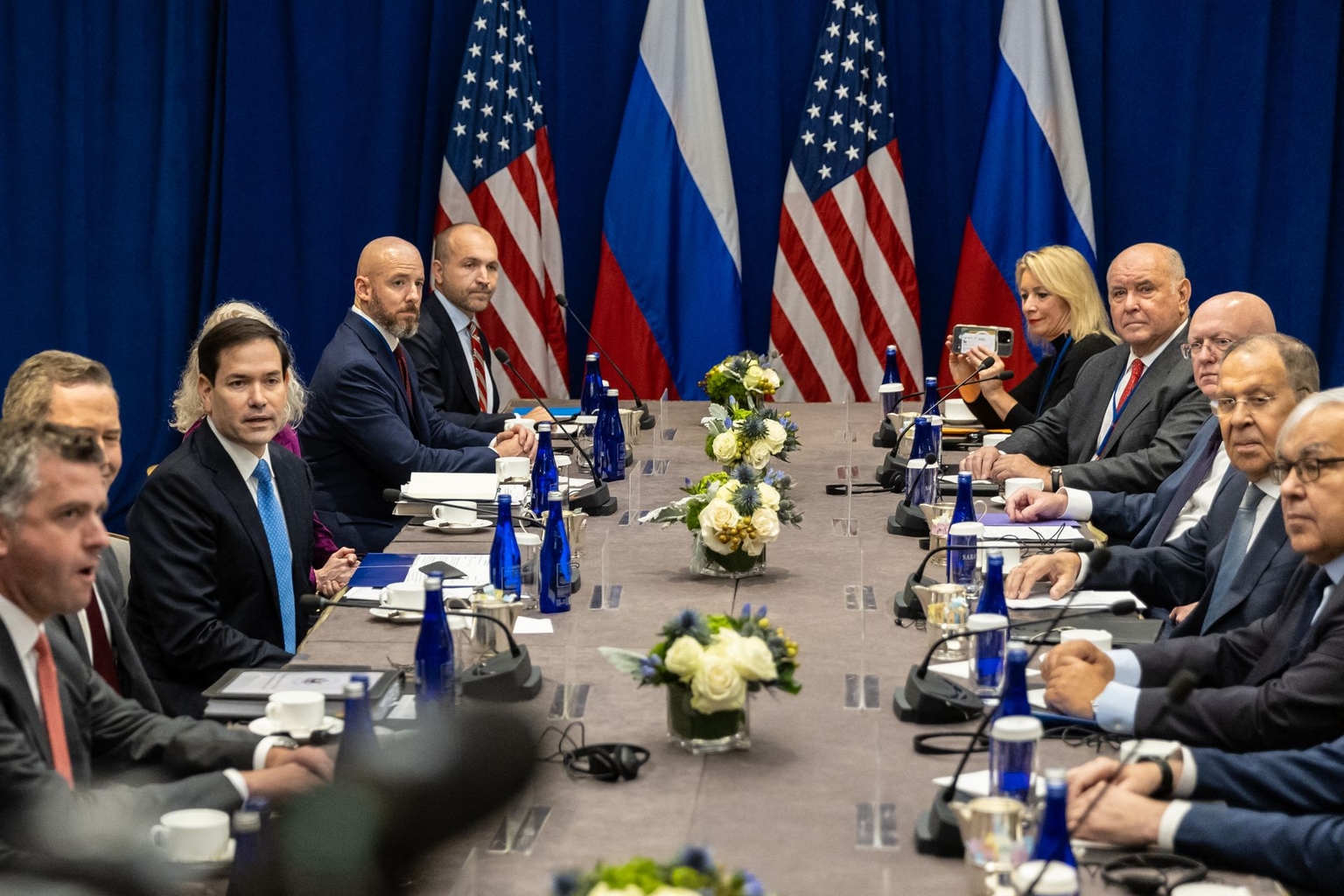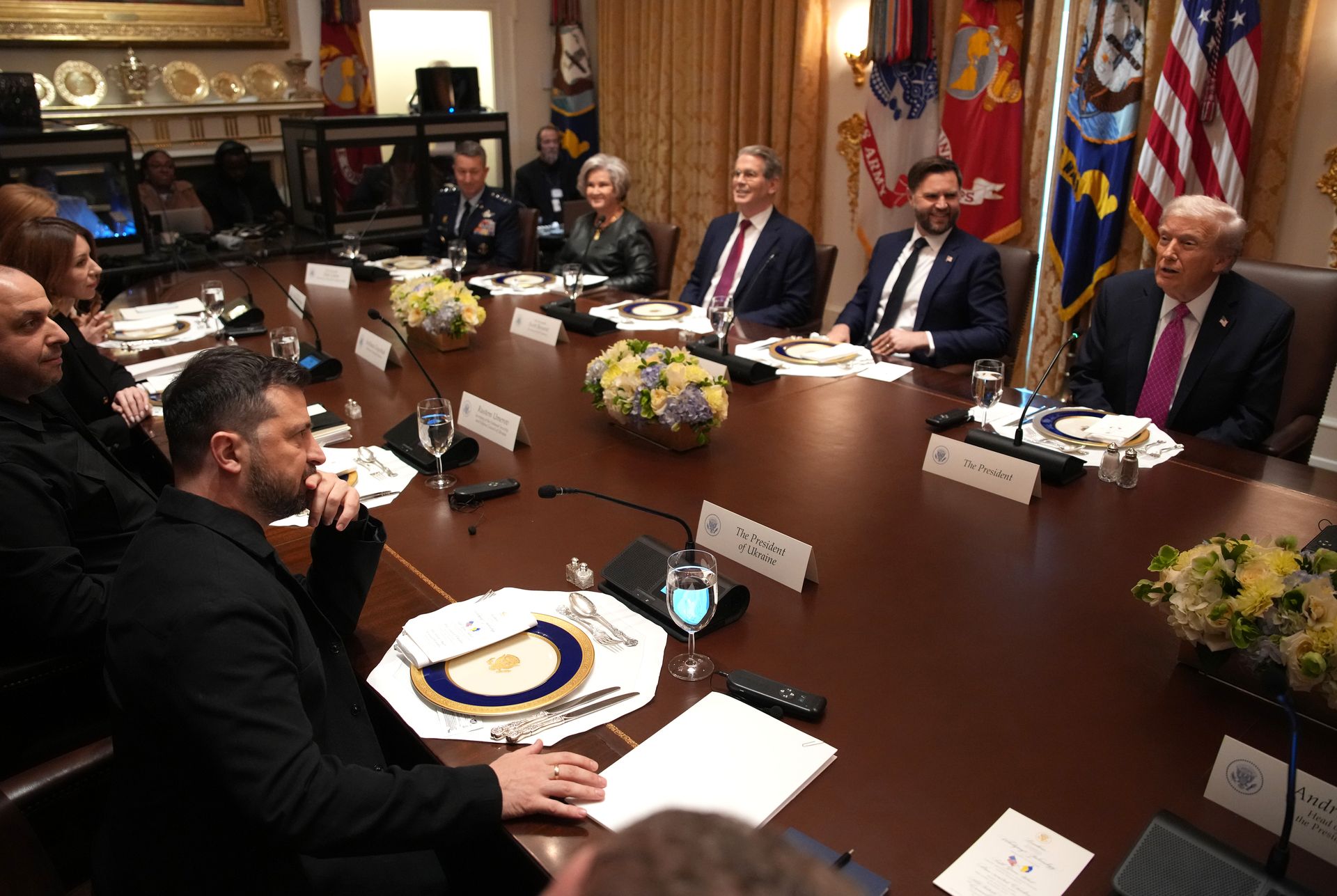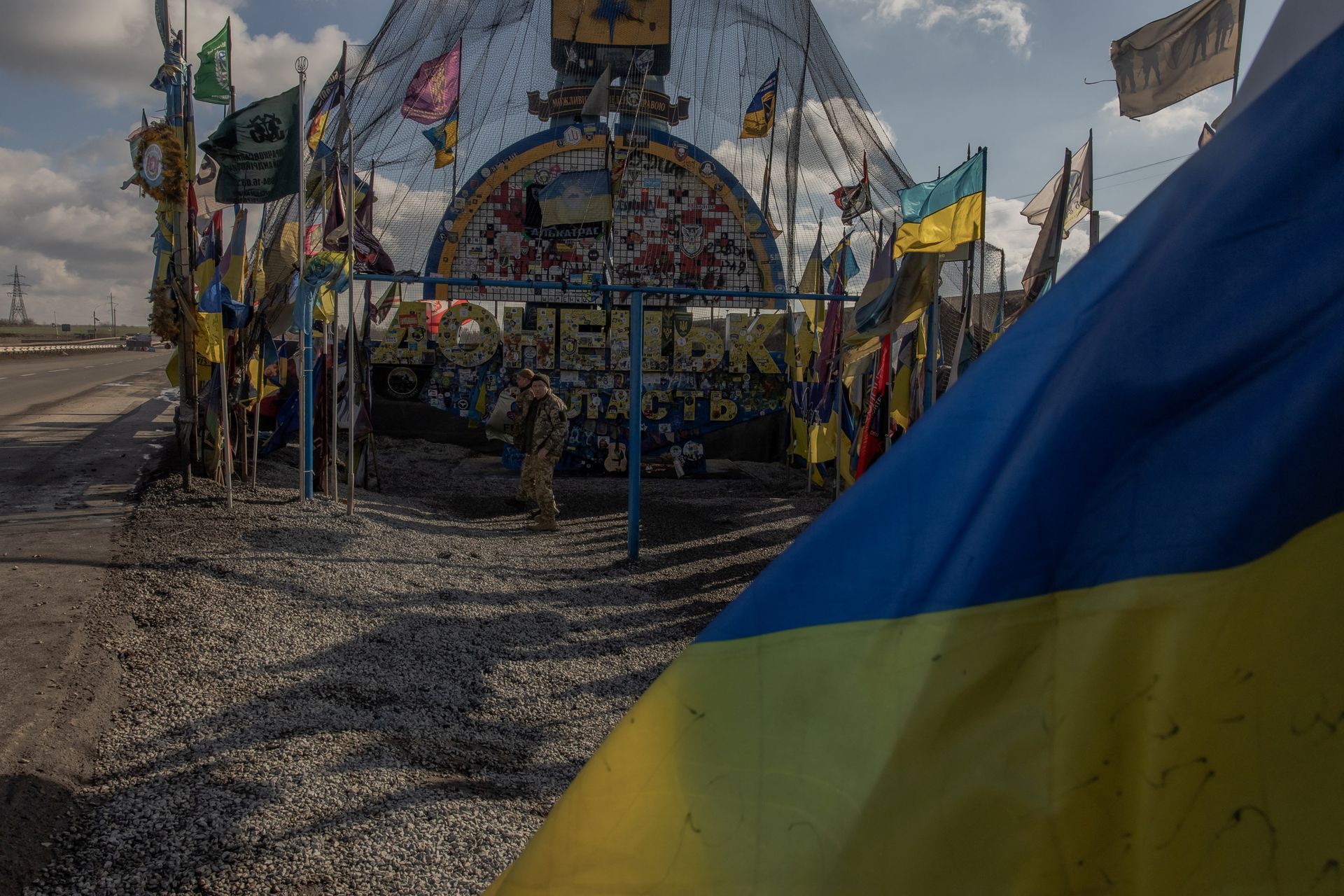No plans for Putin-Trump summit in 'immediate future,' Lavrov-Rubio meeting also shelved

U.S. President Donald Trump (R) and Russian President Vladimir Putin walk away after delivering a joint press conference after participating in a US-Russia summit on Ukraine at Joint Base Elmendorf-Richardson in Anchorage, Alaska, on Aug. 15, 2025. (Drew Angerer/AFP via Getty Images)
There are currently no plans for U.S. President Donald Trump and Russian President Vladimir Putin to meet in the immediate future, a State Department spokesperson told the Kyiv Independent.
Russian Foreign Minister Sergey Lavrov and U.S. Secretary of State Marco Rubio also do not plan to meet in person in the near future, though they held a "productive" call on Oct. 20. An additional meeting between the officials is "not necessary," a State Department spokesperson said.
The news follows Trump's announcement on Oct. 16 that he would meet Putin in Budapest in the coming weeks to discuss efforts to end the war in Ukraine.
NBC News correspondent Garrett Haake said on X that the planning for the Budapest summit is "on hold" at the moment, according to an undisclosed senior White House official. Similar information was reported by the BBC and CBS News.
Trump later told reporters that he had not made a final decision regarding the Putin summit.
"I don't want to have a wasted meeting ... We haven't made a determination yet," Trump said.
The U.S. president added that "a lot of things are happening" and said there would be an update regarding next steps sometime in "the next two days."
Short-lived summit plans
The unexpected turn of events comes only hours after Russian officials said that preparatory work for the Budapest summit is still ongoing, though no date has been agreed upon.
The summit, hosted by Hungary's Moscow-friendly prime minister, Viktor Orban, was set to be the second meeting between Putin and Trump since the latter returned to office in January. The two leaders met in Alaska on Aug. 15 to discuss a path toward ending the war in Ukraine, but made little progress.
The planned high-level talks, met with surprise in Kyiv and other European capitals, were to be preceded by meetings between senior U.S. and Russian delegation, led by Rubio and Lavrov, respectively.

Following a phone call between the two top diplomats earlier this week, CNN reported that, according to sources, their in-person meeting had been postponed due to divergent views and Russia's "maximalist" stance.
Moscow has sought to downplay CNN's reporting. When asked about the story, Lavrov dismissed its framing as "simplistic," while his deputy, Sergei Ryabkov, did not rule out another phone call with Rubio.
"We can't postpone something that hasn't been set," Kremlin spokesperson Dmitry Peskov said on Oct. 21 regarding the meeting between Trump and Putin, before the latest news of it being shelved.
"Preparation is needed, serious preparation," he added, noting that the "work ahead will be challenging."
Putin envoy Kirill Dmitriev claimed that the media was twisting the phrase "immediate future" in order to dismiss plans for the upcoming Trump-Putin meeting.
"Preparations continue," he said on X.
Divergent views
Trump announced plans for the summit with Putin a day before meeting President Volodymyr Zelensky in the White House.
While Ukraine was hoping to secure deals for new U.S. arms, especially Tomahawk missiles, Trump reportedly pressed Zelensky to accept Russia's territorial demands for the entire Donetsk Oblast.
The U.S. president later denied asking Ukraine to cede unoccupied territories, suggesting instead a ceasefire along the current front lines.
Kyiv and its European partners have backed this proposal, while Moscow has rejected it, demanding that what it calls the "root causes" of the conflict be addressed.
The divergence in views on ceasefire negotiations and territorial concessions led some observers to treat the planned summit and its potential outcomes with skepticism.
Talking to the Kyiv Independent before the news about the Budapest summit being on hold, international politics expert Jenny Mathers said that positions of all parties still remain far apart.
After his call with Lavrov, Rubio might have realized "that there is little chance of Russia being willing to compromise," she said.
"The real danger for Ukraine is that Trump will get tired of this back and forth but put the blame on Kyiv rather than Moscow, thus endangering the intelligence sharing and other forms of support," Mathers warned.
Following reports that the U.S.-Russia peace talks had been shelved, NATO announced that Secretary General Marc Rutte would visit Trump for talks on Oct. 21-22. The leaders will discuss "NATO's support to Ukraine and to the U.S.-led efforts towards lasting peace," a NATO official said in a comment to the Kyiv Independent.
In his evening address on Oct. 21, Zelensky linked Russia backing down from peace talks to Ukraine's lack of long-range Tomahawks.
"Russia continues to do everything to weasel out of diplomacy — and as soon as the issue of long-range capabilities for us — for Ukraine — became less immediate, Russia's interest in diplomacy faded almost automatically," he said.
"This signals that this very issue — the issue of our deep strike capabilities — may hold the indispensable key to peace."













